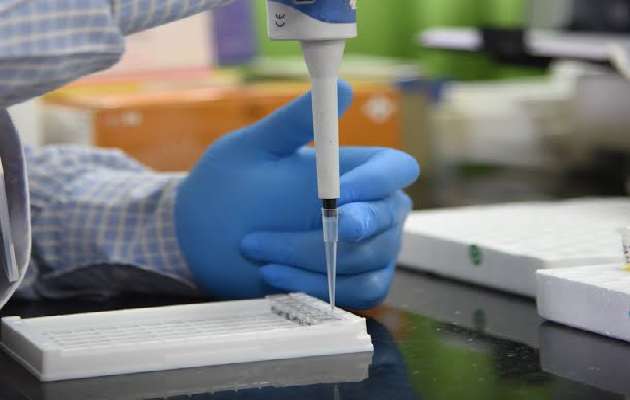


Serology tests play a crucial role in diagnosing infectious diseases, identifying immune responses, and detecting antibodies in the blood.
At Biocheck Diagnostics And Polyclinic, we offer comprehensive serology testing to assess various infections, autoimmune conditions, and immune system functions. These tests help doctors diagnose diseases early and determine the effectiveness of vaccinations and treatments.
Serology Test
A serology test is a diagnostic examination that detects the presence of antibodies or antigens in the blood. These tests are widely used to diagnose infections, autoimmune disorders, and immune system deficiencies.
Serology tests analyze the body's immune response to pathogens, such as bacteria and viruses, by identifying specific antibodies produced to fight infections. Unlike culture-based diagnostic methods, serology tests provide faster and more accurate results, making them essential for detecting past or current infections.
Serology Test

Preparing for a serology test is generally straightforward, but following a few guidelines ensures accurate results:
Always consult your doctor for any specific pre-test instructions based on the serology test being performed.
WHY CHOOSE Biocheck Diagnostics And Polyclinic
Our laboratory is led by a highly qualified M.D. Pathologist, ensuring that every test is interpreted with expert knowledge.
We use advanced technology and automated systems to ensure that your Serology results are accurate, reliable, and fast.
Our lab is staffed with highly trained and experienced hematologists and medical technologists who interpret and analyze your results with precision.
We prioritize your privacy. All test results are confidential and shared only with you and your healthcare provider.
At the heart of everything we do is our commitment to the patient.
We understand that healthcare costs can be a concern, which is why we offer affordable pricing for all of our Serology tests.
What Biocheck Offers
A serological test to detect antibodies against Salmonella typhi, the bacteria causing typhoid fever.
A test that measures ASO antibodies to diagnose streptococcal infections and related complications.
A test that measures CRP levels to assess inflammation and infections in the body.
A blood test to detect Rheumatoid Factor (RF) or anti-CCP antibodies for diagnosing rheumatoid arthritis.
A skin test to detect tuberculosis (TB) infection by measuring the immune response to tuberculin injection.
A screening test for detecting syphilis infection by identifying antibodies against Treponema pallidum.
A test that detects Hepatitis B virus infection in the blood.
A serological test to detect HIV antibodies and antigens for diagnosing HIV infection.
A blood test that detects antibodies or RNA of the Hepatitis C virus for diagnosing HCV infection.
A panel of tests evaluating iron levels, ferritin, and transferrin for diagnosing anemia and iron metabolism disorders.
Detects dengue virus early (within first 5 days) by identifying NS1 antigen.
Confirms immunity or past infection with rubella virus; important for pregnancy.
KNOW ABOUT SEROLOGY
Serological diseases and disorders encompass a wide range of conditions caused by viral, bacterial, fungal, and parasitic infections, as well as autoimmune dysfunctions. These diseases trigger an immune response in the body, leading to the production of antibodies or antigens that can be detected through serological testing. One of the most common serologically diagnosed conditions is HIV/AIDS, where antibody tests help in early detection and monitoring of the disease. Similarly, Hepatitis B and C infections are confirmed using serological markers, aiding in proper treatment planning. Dengue fever, a mosquito-borne viral disease, is detected through tests that identify specific antibodies or the viral antigen in the blood.
Bacterial infections like Syphilis and Typhoid Fever are also diagnosed using serological tests that detect specific bacterial antigens or antibodies. Tuberculosis (TB), a severe lung infection, can be identified using serological methods, though other diagnostic techniques are also used for confirmation. In autoimmune disorders, such as Rheumatoid Arthritis (RA) and Systemic Lupus Erythematosus (SLE), the immune system mistakenly attacks healthy tissues, producing autoantibodies. Serology tests help in detecting these autoantibodies, facilitating early diagnosis and management. Additionally, parasitic infections like Malaria and Toxoplasmosis are commonly diagnosed through serological testing, ensuring timely intervention to prevent complications.
Serology tests are specialized diagnostic tools designed to identify antibodies, antigens, or immune proteins in the blood. These tests are essential for diagnosing infections, autoimmune disorders, and monitoring immune responses. Antibody detection tests, such as the HIV Antibody Test and Hepatitis B Surface Antibody Test, are used to determine whether a person has been exposed to a particular infection in the past or is currently fighting it. By detecting IgM and IgG antibodies, these tests help distinguish between recent and past infections.
On the other hand, antigen detection tests identify proteins from viruses, bacteria, or parasites present in the blood. Examples include the Dengue NS1 Antigen Test, which helps diagnose Dengue fever in its early stages, and the Hepatitis B Surface Antigen Test, used for Hepatitis B screening. Autoimmune serology tests detect abnormal immune responses, such as the Anti-Nuclear Antibody (ANA) Test for lupus or the Rheumatoid Factor (RF) Test for rheumatoid arthritis. Additionally, vaccine efficacy tests measure the presence of protective antibodies following vaccination, such as the COVID-19 Antibody Test, ensuring adequate immune protection.
MAKE APPOINTMENTS